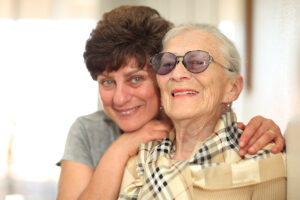How to Prevent Common Bladder Problems
As a person ages, their bladder ages as well. The bladder, which is a flexible, hollow organ that stores urine, becomes less flexible making it difficult to hold as much urine. Its walls may also weaken, and your loved one’s pelvic muscles may become weaker, making urine leakage an issue. Bladder problems can make doing everyday chores more difficult and interrupt daily activities. Your parent may not want to leave the home, for fear of an “accident,” or she might find she can no longer sit through a long movie without having to excuse herself. It might even make getting tasks done at home more difficult. While you can hire a senior home care provider to come to your home to help with chores, you might also be able to help your parent avoid bladder problems such as urinary tract infections, incontinence, and leakage by making some lifestyle changes.
Bathroom Habits

Senior Home Care Hunterdon NJ – How to Prevent Common Bladder Problems
Making a few simple changes to how your loved one uses the bathroom could help her avoid infections and incontinence. If she uses the assistance of a care provider like a senior home care professional, they can also help her follow these guidelines when using the toilet.
- Use the bathroom often, about once every 3-4 hours.
- Make sure to get it all out. Even if she stops urinating, she should try again to see if there is anything left.
- Urine that stays in the bladder for too long, can make a bladder infection more likely.
- Wipe from front to back. This decreases the risk of bacteria entering the urethra.
There are also plenty of healthy bladder choices your loved one can make throughout her day to help maintain good bladder health. Senior home care aides can help with these:
- Wear cotton underwear and loose-fitting clothing. Loose, cotton clothing helps keep the area dry around the urethra. Tight pants or leggings can trap moisture and cause bacteria to grow.
- Practice Kegel exercises. Kegel exercises are exercises geared at strengthening the pelvic floor. They can help the bladder hold its urine, especially when your loved one sneezes or laughs. Your family physician can instruct you on where to find these exercise instructions.
- Drink lots of fluids, especially water. Have your senior care provider fill up a pitcher of water with each visit and encourage your parent to drink it all. A good rule of thumb is that a person should drink enough fluids to cause the need to urinate every few hours.
- Limit caffeine and alcohol. Alcohol can make bladder problems worse, and caffeine can irritate the bladder.
- Avoid constipation. When there is too much stool in the colon, it can put pressure on the bladder and keep it from expanding the way it should. Eating high-fiber foods, exercising regularly, and drinking plenty of water can help reduce the risk of constipation.
- Quit smoking. Smoking increases the risk of bladder cancer and can aggravate other bladder issues.
If you’re loved one has consistent bladder problems, you should plan a visit with her physician to review the causes and possible remedies to her concerns.
If you or an aging loved one are considering hiring professional Senior Home Care Services in Hunterdon NJ, please talk to the caring staff at Generations Home Health Care today. Providing Home Care in Somerset, Essex, Union, Morris, and Hunterdon Counties. Call us today at (908) 290-0691 or (973) 241-4534.
- Reliable, Cheerful, and Professional Care—Even on My Schedule - April 24, 2025
- How Can Seniors Break Free from Hoarding Behaviors? - April 23, 2025
- Meet the Generations Home Healthcare Team! - April 22, 2025


